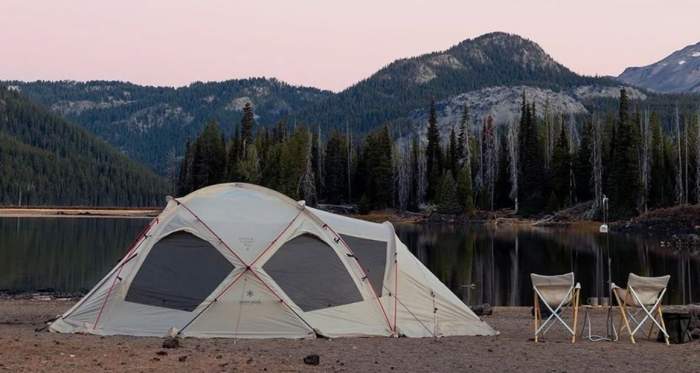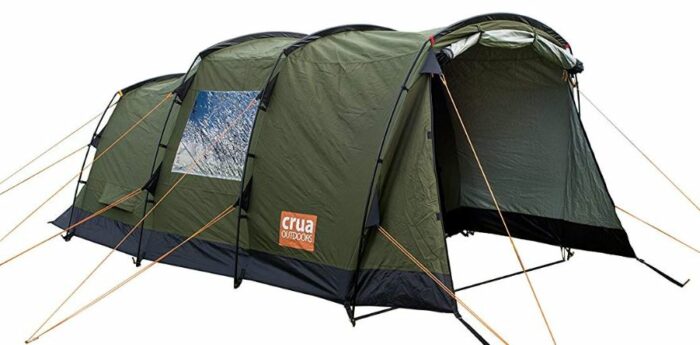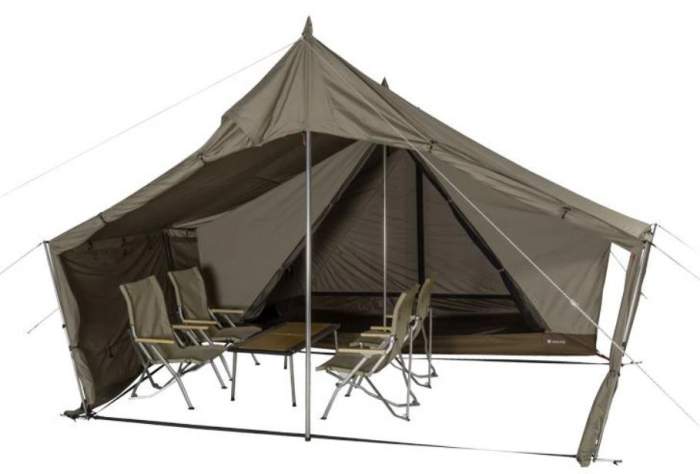This text is motivated by a comment I received in one of my texts in which I wrote that the tent was best suited for summer camping. The comment was that I was wrong, the reader claimed she used it in the snow etc.

So who is right here?
If you follow the link given above, you will see what I replied. But I have decided to write this text here with a bit more details and to have it as a reference for such situations.
That tent and the comment is just a perfect example to write about this issue, but the story is more general. So the tent in question there has 12 windows, its ceiling is many meters large and this is all mesh, it has a partial coverage fly, etc. No doubt, this is what you would expect from a tent for summer camping. But it worked perfect for them in snow conditions.
My stand point is that every tent can be used in every conditions, more or less so. Now, is this perfect? Definitely not. We are all built differently and feeling of comfort and cold is individual.
Do you know the Dutch guy Wim Hoff who climbed to an altitude of 7400 meters on Mount Everest wearing nothing but shorts and shoes? He stopped there because of a recurring foot injury, otherwise who knows, perhaps he could have managed to the summit. He holds many records related to cold temperatures.
But he is an exception and we cannot measure things with his achievements. We have to think about average people who climb Mount Everest with heavy stuff to remain warm.
The same is with tents. You can take a summer tent and sleep in the snow, perhaps using some sleeping pad and sleeping bag for extreme conditions, and you might survive. But this is not optimal. You get the idea?
On the other hand, I have a responsibility to present tents properly and to point out their best use regarding seasons, climate, and the number of users. The rest is up to you, and you can use them as they suit you best. But you realize that you as a reader and me as the author here, we are not in the same position.
Below are some questions which I have seen as being asked on the Internet, with my answers. They are all related to what I was describing above. So this all is about the issue of how to determine the best use of a tent, and for what climate and season it is best suited.
Can you use a summer tent in the winter?
As mentioned above, the answer is yes you can. But is this optimal? The answer is: definitely not. In fact, you might get in trouble and risk your life. Summer camping tents are for summer, it is as simple as this.
Can I use a 3 season tent in winter?
There are many 3-season tents that can perform well if used in winter. If you combine them with really warm sleeping equipment (a sleeping bag and a sleeping pad) you might do well.
Typical examples are dome tents with a full coverage fly. Even if the inner tent is a mesh canopy, you can still preserve warmth under the fly if you put snow around the perimeter and reduce cold draft.
What makes a tent good for cold weather?
There are many elements that can be mentioned here, all important to improve comfort in the tent. The term cold weather may also imply strong winds, snow, camping at high elevations, etc.
But if this is just about low temperatures, then it is important that you can close openings and to prevent cold from getting in. So cold weather tents are frequently true double-layer type and with closable windows (if they have them) and closable vents.
If you also have strong winds and snow, then it is important that the tent is aerodynamic, with strong but flexible support system.
Do you know that there are insulated tents on the market? So this is the type you want to have in such harsh conditions. The picture shows one perfect example of this type.

There are tents that come with an integrated pipe jack, so you can use a wood burning stove and heat such a tent.
Is a small tent warmer?
The answer is not so simple. If you have a tent with mesh windows or with large mesh ceiling canopy, nothing will make it warm.
On the other hand, indeed, if you have a true cold weather tent and it is small, then it will be far more pleasant than a large tent. The reason is that it will be heated by the people’s bodies. So the smaller surface the less chance for the warmth to escape.
What’s a 4 season tent?
From what I have seen around, very frequently the term 4-season tent is used to describe a winter tent, and this is simply not correct.
A true 4-season tent is supposed to perform well in all seasons and in all weather conditions. This means it should withstand intense variations in weather situations.
I would say that practically all Snow Peak tents are true 4-season tents. The reason is that they have two layers, they have excellent support, and their ventilation is hard to match.
Such tents can be ventilated as much as you want when you need ventilation, but they can be closed completely if you feel cold.

Can I use a 4 season tent in summer?
If this is about a true 4-season tent, as described in the previous section, then you will have no problems by using it in summer. Ventilation is essential, so if tent offers enough mesh sections and vents, you will be doing fine.
Is a 4 season tent necessary for winter camping?
In view of everything described above, for winter camping it is best to have a true winter tent. But a high quality 4-season tent will serve you well in winter use.
If you go to mountains, then it is best to have a true 4-season tent. So when you camp in low valleys, it will perform as a usual 3-season or summer camping tent. But if you move to high mountain passes that are sometimes over 2500 meters of elevation, you will have to relay on the tent’s winter camping features.
All in all, the answer to the question is: it is not necessary but it may work just fine.
Do you need a 4 season tent for winter camping?
The answer is similar as in the previous question. So for winter camping you need a winter tent. But many quality 4-season tents will work the same way as winter tents.
So it is not that you need a 4-season tent for winter camping, but it will work fine.
Which tent is the warmest?
I am pretty sure the warmest tent is a heated tent. So go for a tent equipped with a pipe jack and heat it with a wood burning tent stove.
The next best option is an insulated tent. You can see them in my separate list.
So I hope that I have managed to describe what a 3 season tent is, and how and when it can be used. This is not an exact science, but it should be quite clear what type of tent you need for certain climates and seasons.
In any case, if you have questions please do not hesitate to ask, there is a comment box below.
Leave a Reply